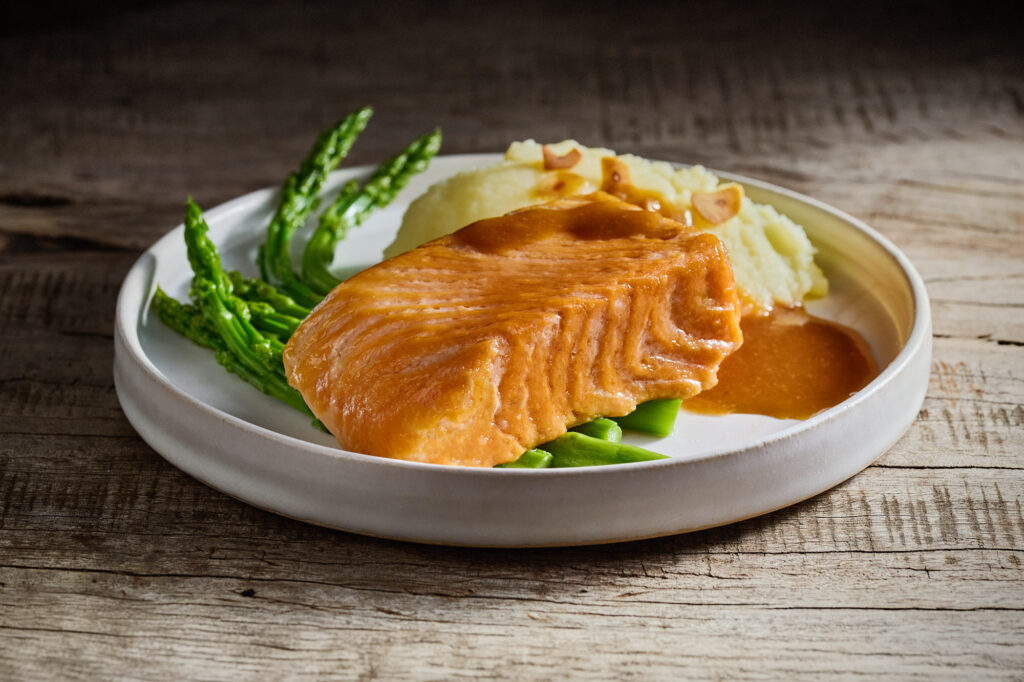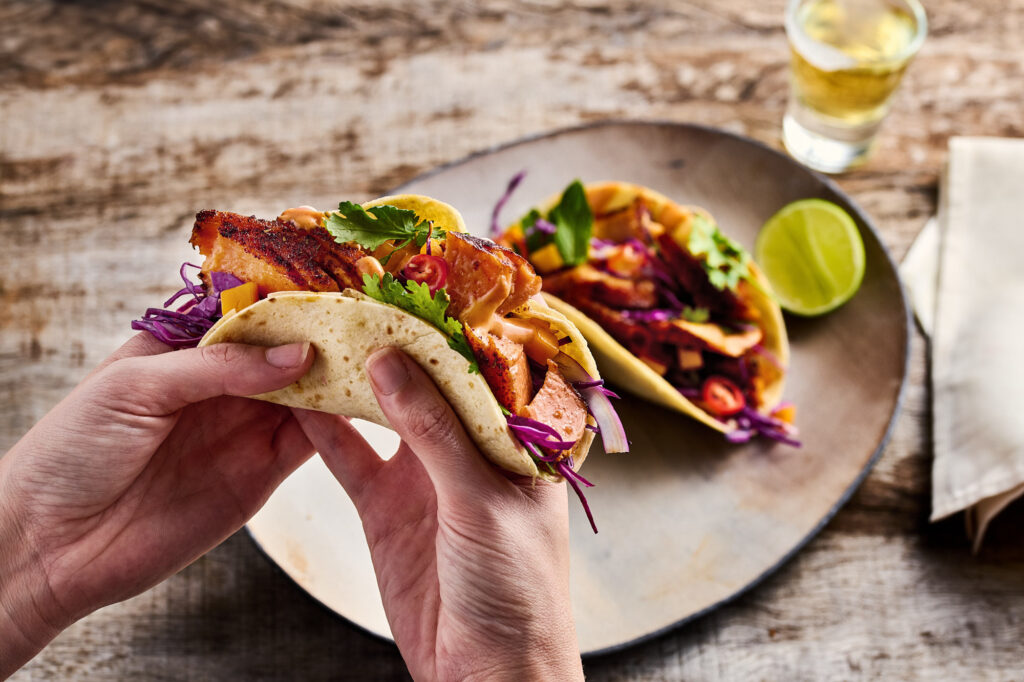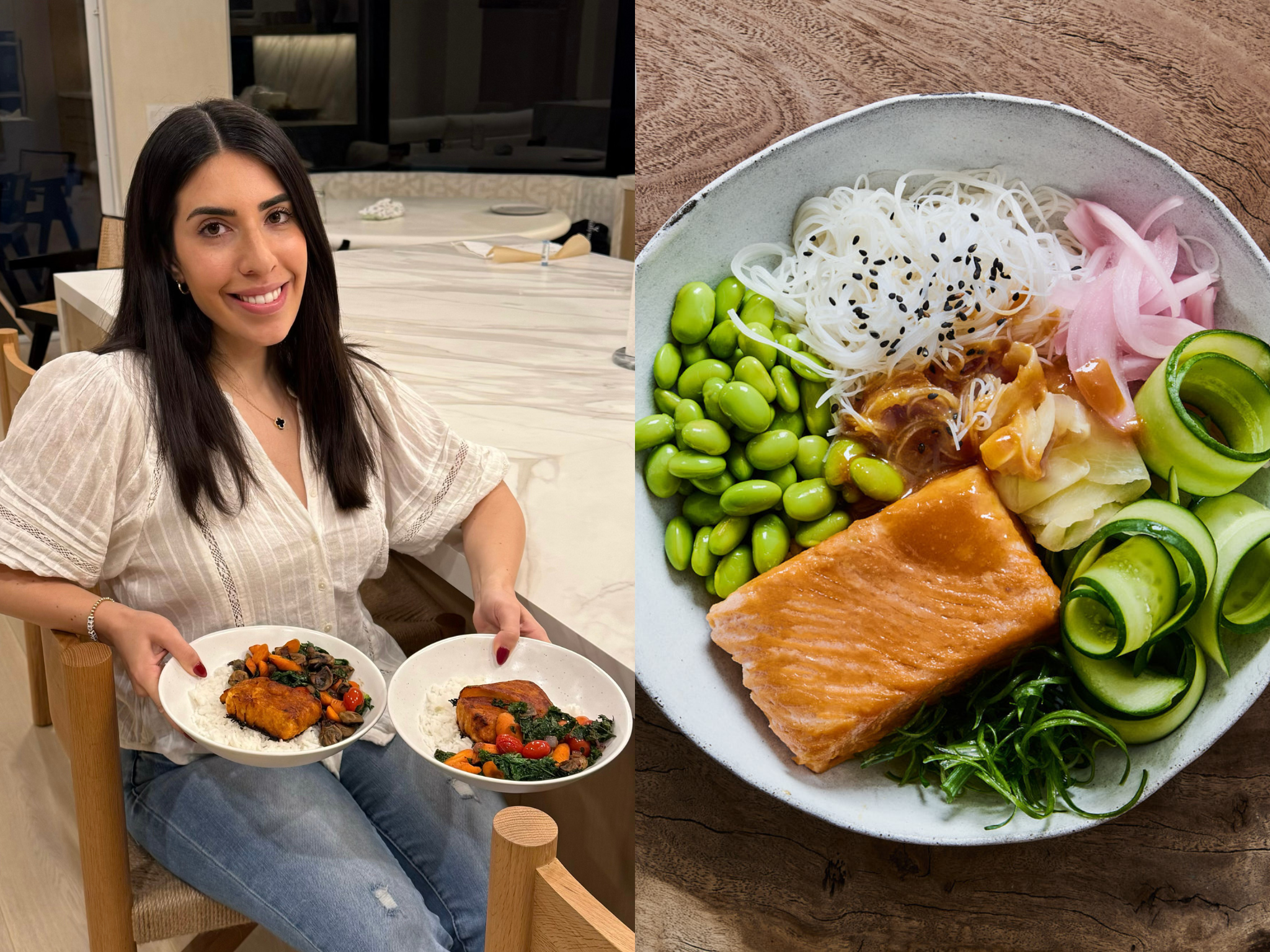HealthyGirl Kitchen: Why the Internet’s Most Famous Vegan Influencer Invested in A Plant-Based Salmon Startup
5 Mins Read
Danielle Brown, the face behind HealthyGirl Kitchen, tells Green Queen why she chose to invest in vegan seafood company Oshi.
Plant-based seafood startup Oshi, which makes a whole-cut salmon alternative, is tapping the world’s most-followed vegan influencer to fuel its growth in the US.
The Israeli firm has welcomed HealthyGirl Kitchen founder Danielle Brown, who has over 10 million followers across social media, as an equity investor and brand ambassador.
Brown, whose brand is built around whole-food plant-based foods, was impressed by Oshi’s salmon (which is made from a blend of mycoprotein, soy protein, algal oil, and rice flour) and brand messaging, and was driven to invest in the startup after meeting founders Ofek Ron, Ariel Szklanny, Ron Sicsic and Hila Elimelech.
The partnership aims to expand Oshi’s social media presence and help it secure retail listings, accelerating the brand’s reach in the US. The vegan salmon has already appeared at a number of restaurants this year, most recently being menued at Four Seasons Hotel San Francisco’s MKT Restaurant and Bar.
While the investment sum and details about retail partnerships are under wraps, Brown hopes to leverage her experience as a New York Times Best Selling Author and her highly popular HealthyGirl Kitchen brand to help Oshi reach new heights as its chief culinary officer.
It is the second instance of Brown becoming an equity partner in a company, following her investment in Azuna, which makes plant-based odour eliminators. She speaks to Green Queen about her decision to join forces with Oshi, the importance of brand-influencer partnerships, and why vegan seafood has a marketing problem.
This interview has been slightly edited for clarity and concision.

Green Queen: How would you describe HealthyGirl Kitchen’s ethos to the uninitiated?
Danielle Brown: HealthyGirl Kitchen’s main mission is to empower women to nourish their bodies through healthy plant-based recipes. Our goal is to make a healthy lifestyle approachable, easy, sustainable, and of course delicious, through realistic meal ideas, wellness tips, healthy motherhood advice and more.
HealthyGirl Kitchen emphasises that plant-based eating is for everyone, regardless of dietary preferences. It encourages people to try vegan meals even if they aren’t strictly vegan, fostering a sense of community.
We also advocate for eco-friendly, sustainable food practices. By encouraging plant-based meals, HealthyGirl Kitchen promotes reducing the environmental impact associated with traditional animal agriculture.
GQ: Why did you decide to partner with Oshi? What does your role as chief culinary officer entail?
DB: The vegan space is majorly lacking in the plant-based seafood market. I have been waiting for a plant-based salmon product for the past 10 years that I’ve been vegan, and once I was introduced to Oshi, I knew I needed to be a part of it.
Not only will I be a brand ambassador for Oshi, but my expertise as a New York Times Best Selling cookbook author, vegan mother, and social media influencer will contribute greatly to anything from product taste testing and ensuring Oshi’s ingredients and quality are aligned with what consumers want, to spreading the message to consumers about where they can find Oshi.

GQ: What stood out to you about the brand’s salmon, versus other fish-free versions?
DB: There is no other product on the market like Oshi salmon. A cooked vegan salmon fillet is something that you cannot find. The flakiness, fatty layers, fish-like taste, and hearty yet light texture are so incredibly close to real salmon, it is truly remarkable.
GQ: Your brand is built around the health benefits of vegan diets – how does Oshi’s salmon fit into that?
DB: Plant-based fish offers an alternative that does not have the issue of ingesting microplastics, antibiotics or heavy metals.
Oshi salmon is made with soy protein as well as mushroom protein – two incredible sources of plant-based protein. I always stress to my audience how important it is to consume protein with every meal. It can be difficult for people, vegan or not, to figure out what protein to eat throughout the day.
Oshi can seamlessly fit into any meal from salmon tacos, to salmon burgers, to adding a fillet on top of a bowl or salad. One Oshi filet adds 20g of protein to a meal.

GQ: Vegan seafood has had a couple of rough years in retail, much like the rest of the industry. What do you feel consumers (such as your audience) are looking for in these products?
DB: I don’t think vegan seafood products are marketed the right way and are not exactly what people are looking for. I also don’t believe the vegan seafood products available taste that great either.
For example, I recently tried a vegan pesto fish burger that was not good – I had to throw it out. People want what they’re familiar with and that’s what Oshi is: a traditional salmon fillet that happens to be plant-based.
GQ: How do you feel influencer partnerships can help brands in a tangible manner?
DB: Influencer partnerships can be critical to a brand’s success. Influencers have established audiences that follow them for a reason, whether they relate to them, trust their opinions and recommendations, look to them for guidance or advice, or simply for inspiration. Influencers have the power to bring brand awareness and sales to a product, service, or company that their audience may not have heard of before.
Instead of a random model or unrelatable actress promoting a face wash on a TV commercial, you have someone like me, a toddler mom who lives a healthy lifestyle and shares my personal life daily with my community. This creates a sense of trust that other forms of marketing simply do not have.

GQ: What does the next year look like for your partnership with Oshi?
DB: The next year is going to be groundbreaking for Oshi. Prepare to be able to find Oshi at a greater number of restaurants and chains near you. We are working effortlessly to get this into the hands of the public.
Oshi is revolutionary for preserving wildlife, saving the fish in our oceans, providing a safe fish alternative for those with fish allergies, and it will be a nutritious option that supports long-term food security and offers a cleaner, healthier alternative for consumers.



